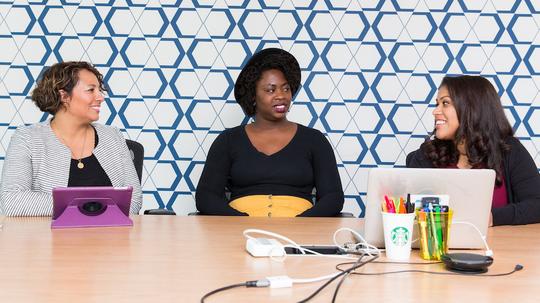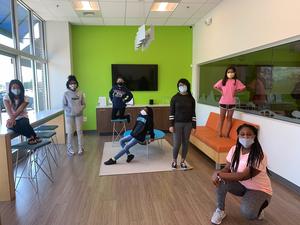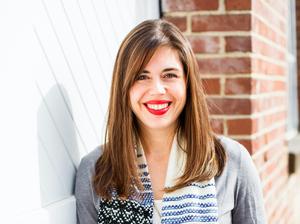
Many people don’t believe it when I tell them that I am one of five daughters. They really shake their heads when I tell them that all five of us are women in STEM; an accountant, a physician, an epidemiologist and two of us in STEM education. When you look at the statistics of the number of women in STEM fields, you could say that we beat the odds. At this point however, our work is to not only succeed in our fields but to inspire other girls and women to join us, which is why I have dedicated my career to STEM education, specifically underrepresented groups in STEM.
I have the privilege of leading the organization, Digi-Bridge, a nonprofit founded in 2014 working to prepare students for the digital age. We are largely focused on coding, robotics, and STEAM, and fulfill our mission through programs such as school and community-based #STEAMSaturdays, competition robotics and programming teams and family events like #FamilyCodeIn and #DaddyDaughterCode-In. We work with innovative companies such as Google Fiber, Honeywell and Duke Energy to develop relevant curriculum, provide engaging mentors and opportunities for students to see themselves as scientists and technologists with a pathway for success in the fields they study.
In addition to leading Digi-Bridge, I am a National Trainer for SciGirls and Hero Elementary, two PBS programs focused on getting more girls interested in STEM through professional development, resources and programs. Throughout my experience with both programs, I have had the honor of working with educators across the country who are passionate about diversity in STEM. My most proud moment was being included in a major research initiative to update proven strategies for engaging girls and women in STEM.
Throughout all of this work, I have observed the following:
- Leaders in the science education community have a tendency to say things like “girls don’t like bugs,” or only offer courses for girls with topics such as make-up and cooking.
- Parents let their daughters drop out of STEM-focused programs because “it is too hard.”
- There is a lack of diverse role models who are willing to share their story of how STEM didn’t come easy to them in school and how hard they had to work to get to where they are today.
More than ever, we need to support our girls and women in STEM to solve the world’s greatest challenges such as climate change, world health issues and artificial intelligence. If you are nodding your head in agreement, then I ask you to make an impact:
- Push the envelope: Ask your local leaders why there aren’t women in leadership and offer solutions such as building a pipeline program that encourages mentorship and skill building.
- Sign up and volunteer as a STEM role model in schools or run a club focused on coding for girls, even if you’ve never coded a day in your life.
- Embrace and exhibit failure in your everyday life. Research proves that society expects girls and women to be perfect. When we’ve been molded this way since childhood, it’s hard to flip the switch and suddenly accept failure as a good thing. As a mother of a two-year old daughter, this is critical as I raise her to try new things. One of our mottos is “let’s do it again!” and you’ll hear that as we purposefully destroy amazing LEGO builds.
- Seek out resources to encourage girls in STEM. My favorites include SciGirls, The Ella Project, Fab Fems and A Mighty Girl.
At Digi-Bridge, we are working to ensure gender parity in all of our programs, having all of our facilitators trained in gender-equitable teaching strategies in STEM, and making our content culturally relevant for girls from all different backgrounds. I encourage you to do an audit of your organization, school or business and think of ways you, too, can be a champion for girls and women in STEM.
Alyssa Sharpe is CEO of Digi-Bridge. She has ten years of STEM education and nonprofit management experience, including as a teacher with Charlotte-Mecklenburg Schools, Trinity Episcopal School, and as National Director for Project Scientist. Alyssa oversees the growing fee-for-service #STEAMSaturdays offerings in Ballantyne, Davidson, SouthPark, and Uptown.








